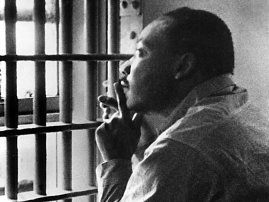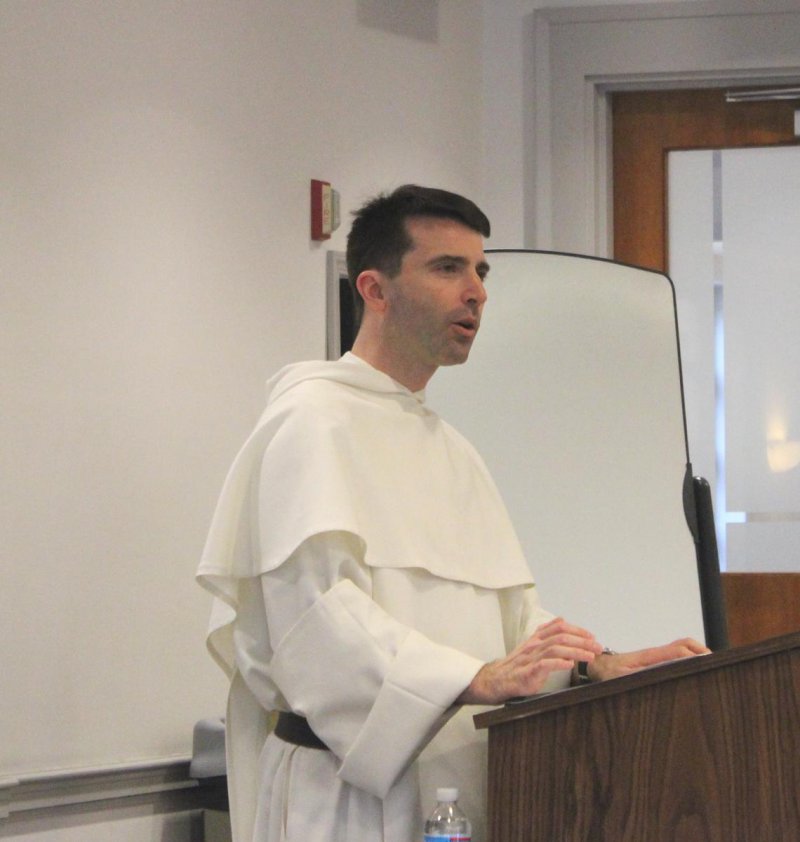The recent release of the movie "Selma" has introduced a younger generation of Americans to the story and philosophy of Dr. Martin Luther King Jr. Most viewers come away with a better understanding of the slain civil rights leader's commitment to social justice and non-violent change, but for some, the moral basis for King's willful disobedience of segregationist laws may bear further explanation.

Exploring King's reasons was the purpose of "Martin Luther King, Jr., and the Question of 'Illegal Laws': Civil Law, Justice, and Morality," a lecture given at the law school on Jan. 26 by Rev. Dominic D. F. Legge, O.P. Prior to his ordination as a Dominican in 2007, Fr. Legge had earned a Yale Law School degree, served as a trial attorney in the U.S. Department of Justice's Civil Division, and taught as an adjunct professor at the Columbus School of Law. Quoting liberally from King's famous 1963 "Letter from a Birmingham Jail," which argued that he could rightly disobey duly enacted civil laws enforcing segregation and racial discrimination, Legge linked the evolution of King's moral thinking to at least two significant influences: the writings of Saint Thomas Aquinas, and the inspired (if ultimately unsuccessful) Hungarian Revolution of 1956, a spontaneous nationwide revolt against the nation's government and its Soviet-imposed policies. Drawing from both examples, King would write that "A just law is a man-made code that squares with the moral law or the law of God. An unjust law is a code that is out of harmony with the moral law." Fr. Legge explained that as King saw it, the doctrine of legal positivism, which views the law as a social construction apart from considerations of innate morality, is simply wrong.

"Positivism does not offer a fully satisfactory view of the law," said Fr. Legge. "It is not the case that something is just, just because a duly constituted authority says it is." Aquinas expressed the same idea in different words, writing that "Law is the ordination of reason toward the common good." Reinterpreted hundreds of years later by Rev. King, that conception of the law as an impetus for moral action lost none of its power. The lecture was the fourth of the 2014-15 academic year in the law school's "Faith in Action" series, which aim to provide a unique opportunity for law students to explore the connections between faith, justice, and service with one another, exchange ideas with guest participants, and participate in some real world service initiatives in the local community.
